Stopping Discrimination Again the Mentally Ill
Stigma, Prejudice and Discrimination Against People with Mental Disease
More than one-half of people with mental affliction don't receive assistance for their disorders. Often, people avert or delay seeking treatment due to concerns nigh being treated differently or fears of losing their jobs and livelihood. That's because stigma, prejudice and discrimination against people with mental illness is even so very much a problem.
Stigma, prejudice and bigotry against people with mental affliction can be subtle or it can be obvious—but no matter the magnitude, it tin can lead to impairment. People with mental illness are marginalized and discriminated against in various ways, but understanding what that looks like and how to address and eradicate it can help.
The Facts on Stigma, Prejudice and Discrimination
Stigma often comes from lack of understanding or fear. Inaccurate or misleading media representations of mental disease contribute to both those factors. A review of studies on stigma shows that while the public may take the medical or genetic nature of a mental wellness disorder and the need for treatment, many people withal take a negative view of those with mental affliction.
Researchers identify unlike types of stigma: (Run across chart below.)
- Public stigma involves the negative or discriminatory attitudes that others have about mental disease.
- Self-stigma refers to the negative attitudes, including internalized shame, that people with mental affliction have about their own condition.
- Institutional stigma, is more systemic, involving policies of government and private organizations that intentionally or unintentionally limit opportunities for people with mental illness. Examples include lower funding for mental illness research or fewer mental health services relative to other wellness care.
Stigma not only directly affects individuals with mental illness merely also the loved ones who support them, ofttimes including their family members.
Stigma effectually mental disease especially an result in some various racial and ethnic communities and information technology can be a major barrier to people from those cultures accessing mental health services. For example, in some Asian cultures, seeking professional person help for mental illness may be counter to cultural values of strong family, emotional restraint and avoiding shame. Among some groups, including the African American community'southward, distrust of the mental healthcare system can likewise be a bulwark to seeking help. (Run into more on mental health in Diverse Populations.)
Types of Stigma
| Public | Self | Institutional | |
|---|---|---|---|
| Stereotypes & Prejudices | People with mental illness are dangerous, incompetent, to blame for their disorder, unpredictable | I am dangerous, incompetent, to blame | Stereotypes are embodied in laws and other institutions |
| Bigotry | Therefore, employers may not hire them, landlords may not rent to them, the health care system may offer a lower standard of intendance | These thoughts atomic number 82 to lowered self-esteem and self-efficacy: "Why endeavor? Someone like me is not worthy of practiced health." | Intended and unintended loss of opportunity |
Source: Adapted from Corrigan, et al.
Media representations of people with mental illness can influence perceptions and stigma, and they have often been negative, inaccurate or violent representations. A written report published in April 2020 looked at a recent instance, the pop film Joker (2019), which portrays the pb character as a person with mental disease who becomes extremely violent. The study found that viewing the film "was associated with college levels of prejudice toward those with mental affliction." Additionally, the authors advise, "Joker may exacerbate self-stigma for those with a mental illness, leading to delays in help seeking."
The stigma of mental illness is universal. A 2016 study on stigma concluded "in that location is no land, society or civilization where people with mental illness take the same societal value as people without mental affliction."
Harmful effects of stigma and discrimination
Stigma and bigotry can contribute to worsening symptoms and reduced likelihood of getting treatment. A recent extensive review of research plant that self-stigma leads to negative effects on recovery amidst people diagnosed with severe mental illnesses. Effects can include:
- reduced hope
- lower cocky-esteem
- increased psychiatric symptoms
- difficulties with social relationships
- reduced likelihood of staying with treatment
- more than difficulties at piece of work
A 2017 study involving more than 200 individuals with mental illness over a menstruation of two years institute that greater self-stigma was associated with poorer recovery from mental illness after one and ii years.
An editorial in the Lancet notes that the impacts of stigma are pervasive, affecting political enthusiasm, charitable fundraising and availability, support for local services and underfunding of research for mental health relative to other health conditions.
Some of the other harmful effects of stigma can include:
- Reluctance to seek assistance or treatment and less likely to stay with treatment
- Social isolation
- Lack of understanding past family unit, friends, coworkers, or others
- Fewer opportunities for piece of work, schoolhouse or social activities or trouble finding housing
- Bullying, physical violence or harassment
- Wellness insurance that doesn't fairly cover your mental illness treatment
- The belief that you'll never succeed at certain challenges or that you can't improve your state of affairs
- Source: Adapted from Mayo Clinic
Stigma in the Workplace
A 2019 national poll from the American Psychiatric Association (APA) constitute that mental wellness stigma is all the same a major challenge in the workplace. About half of workers were concerned about discussing mental health issues at their jobs. More 1 in three were concerned nearly retaliation or existence fired if they sought mental health care.
Only about only near 1 in five workers were completely comfy talking almost mental health issues. The poll found a generational divide: millennials were almost twice as probable as baby boomers to be comfy (62% vs. 32%) discussing their mental health.
On a more than positive annotation, about half of workers were at least somewhat comfortable talking near mental wellness and most workers said they would help guide a troubled co-worker to mental health resource. However, even amidst those willing to assist, about i in iv workers said they would not know where to turn for mental health aid.
Addressing Stigma
Enquiry shows that knowing or having contact with someone with mental disease is one of the all-time ways to reduce stigma. Individuals speaking out and sharing their stories tin can accept a positive affect. When we know someone with mental illness, it becomes less scary and more existent and relatable.
A 2016 review of inquiry on addressing stigma concluded that efforts to reduce stigma and discrimination can piece of work at the personal and population levels. The strongest evidence was for anti-stigma efforts involving contact with individuals with lived experience with mental illness and efforts with a long-term commitment.
Many celebrities, such equally Demi Lovato, Dwayne "The Rock" Johnson, Michael Phelps, Taraji P. Henson and Lady Gaga have publicly shared their stories of mental health challenges and brought the discussion much more into the general media and everyday conversation. Immature people are looking for information and for these personal stories online.
A 2020 national survey of 14- to 22-year-olds institute that ninety pct of teens and young adults experiencing symptoms of depression are researching mental health problems online and most are accessing other people's health stories through blogs, podcasts, and videos. About three in 4 immature teens seeking information online nearly depression said they were looking for personal anecdotes from people who had suffered in the by.
Social marketing campaigns tin can also be effective. For example, a inquiry study looked at the effectiveness of an anti-stigma social marketing entrada in California and constitute that the campaign increased service use by helping people better empathize symptoms of distress and increasing awareness that help is bachelor. The researchers estimated that if all adults with probable mental disease were exposed to the California mental health entrada, 47% would receive mental health treatment. If the same adults were not exposed to the campaign, 36% would receive treatment.
The National Brotherhood on Mental Illness (NAMI) offers some suggestions about what we can practice every bit individuals to help reduce the stigma of mental illness:
- Talk openly near mental wellness, such as sharing on social media.
- Educate yourself and others – respond to misperceptions or negative comments by sharing facts and experiences.
- Be conscious of language – remind people that words matter.
- Encourage equality between concrete and mental disease – draw comparisons to how they would treat someone with cancer or diabetes.
- Show pity for those with mental illness.
- Be honest about treatment – normalize mental health treatment, only like other health care treatment.
- Allow the media know when they are using stigmatizing language presenting stories of mental illness in a stigmatizing way.
- Choose empowerment over shame - "I fight stigma by choosing to live an empowered life. to me, that means owning my life and my story and refusing to allow others to dictate how I view myself or how I feel nigh myself." – Val Fletcher, responding on Facebook to the question, How do you fight stigma?
While stigma and discrimination are even so prevalent in the workplace, employers are increasingly addressing stigma against mental disease. The APA Foundation's Center for Workplace Mental Health emphasizes the importance of both robust health intendance services and specific efforts to break the silence that surrounds the topic of mental affliction.
Employers who are leading efforts to address stigma offering some suggestions:
- Tailor programs/approaches to your company culture and existing strengths.
- Mention your delivery to leading a behaviorally good for you workplace every time you mention the company's commitment to its overall culture of health, attracting and retaining the best talent, and valuing its employees, etc.
- Train leaders to identify emotional distress and make referrals and to responding promptly and constructively to behavioral performance issues.
- Be welcoming of the need for accommodations. Railroad train managers to answer accordingly.
- Source: Working Well Toolkit
Organizations and Campaigns
Beyond the country numerous organizations and campaigns focus on addressing the issue of mental health stigma and bigotry. A few examples are highlighted below.
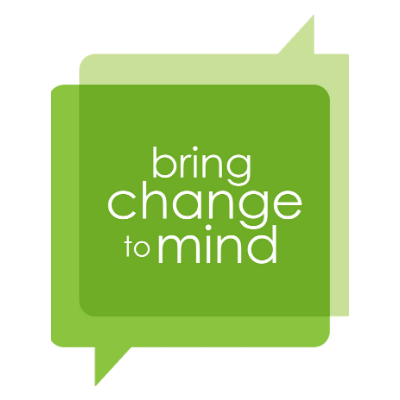
Bring Modify to Mind
Bring Change to Heed is a nonprofit organization focused on encouraging dialogue most mental health and raising sensation, understanding, and empathy. Extra and activist Glenn Close co-founded Bring Change to Mind in 2010 afterwards her sister and nephew were diagnosed with mental illnesses. It offers resources and tools to larn more and take action to reduce stigma.
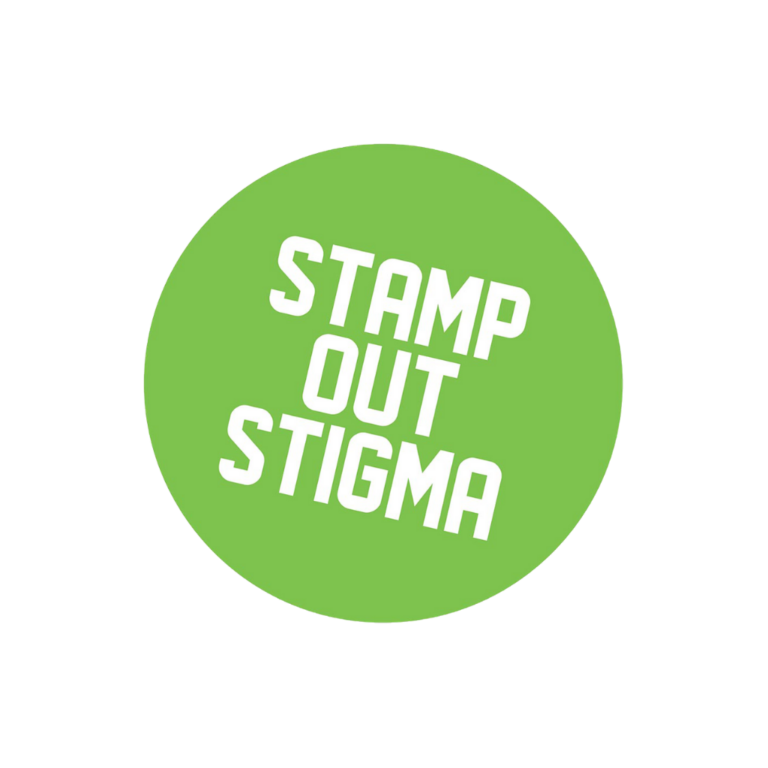
Stamp Out Stigma
Postage Out Stigma is an initiative spearheaded by the Association for Behavioral Health and Wellness to reduce the stigma surrounding mental illness and substance apply disorders. The campaign encourages people to outset the conversation and to talk openly about mental illness and substance use.
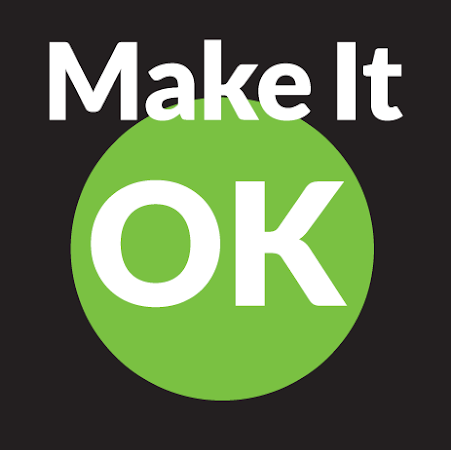
MakeItOK.org
"Make Information technology OK" is a campaign to reduce the stigma of mental illnesses. The campaign offers personal stories, tips on what to say when talking nearly mental health, and resources to help fight stigma in the community. (Come across some tips on what to say and what not to say in the chart below.)
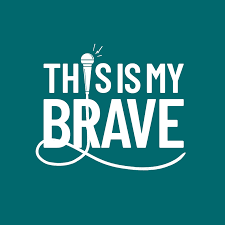
This is My Dauntless
This is My Brave is a storytelling theatre show where individuals from the customs share their stories of living a successful life despite mental affliction. Since 2014, This Is My Brave has produced nearly 800 storytellers sharing true, personal stories on overcoming low, anxiety, bipolar disorder, PTSD and other illnesses. In spring 2020, the organizers developed BraveTV to bring stories of hope online during the COVID-19 pandemic.
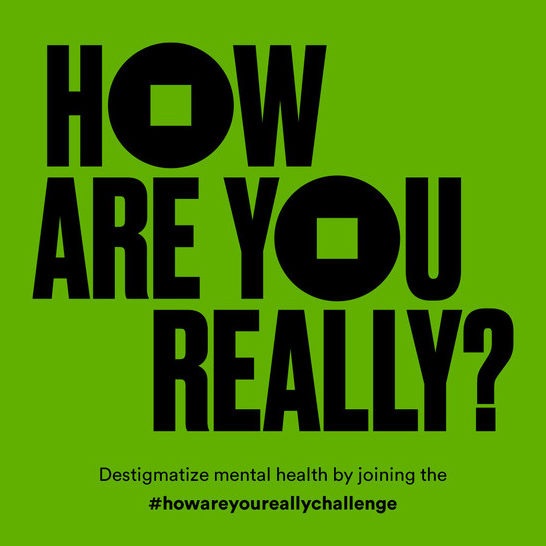
Mental Health Coalition/How are you really?
One recent effort is the Mental Health Coalition, spearheaded by Kenneth Cole in partnership with handful of partners. Partner organizations and celebrities include Agile Minds, NAMI, The JED Foundation, Anxiety and Depression Clan of America, Kendall Jenner, Kesha, and others. The focus of the coalition is fighting stigma through the sharing of stories with the tag line "How are you really?"

StigmaFree Campaign
NAMI'due south StigmaFree campaign is working to stop stigma and create hope for those afflicted by mental affliction: "Through powerful words and actions, we can shift the social and systemic barriers for those living with mental health conditions." As part of the entrada, people can take a stigma quiz at CureStigma.org and learn more about condign stigma costless.
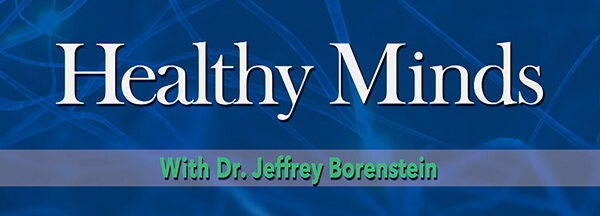
Healthy Minds Public Television Serial
Healthy Minds with Dr. Jeffrey Borenstein aims to remove the stigma of mental disease and demonstrate that with help, there is hope. The series focuses on common psychiatric conditions through inspiring personal stories, too as, experts sharing cutting edge information, including new approaches and adjacent-generation therapies in diagnostics, treatment and research. Series is produced by the Encephalon & Behavior Research Foundation.
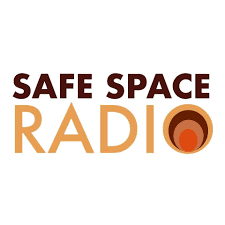
Condom Infinite Radio: Profiles in Mental Wellness Backbone
Safe Infinite Radio combines compelling storytelling with practical proficient guidance to give you the tools y'all need to get-go finding your own courage. The Profiles in Mental Health Courage series explores the feel of living with mental illness—such as low, feet, schizophrenia, and borderline personality disorder.
How do we end stigma? Conversation
Try these unproblematic tips for talking.
| DO SAY | DON'T SAY |
|---|---|
|
|
Source: MakeItOK.org
Doc Review By:
Jeffrey Borenstein, G.D.
President and CEO,
Encephalon & Behavior Research Foundation
Baronial 2020
References
- National Institute of Mental Health Mental Affliction
- The Lancet Editorial. The health crisis of mental health stigma. The Lancet, 2016, 387:1027.
- Well-being Trust. Digital Wellness Practices, Social Media Use, and Mental Well-Existence Among Teens and Immature Adults in the U.S. 2018.
- Rossler, Westward. The stigma of mental disorders: A millennia-long history of social exclusion and prejudices. EMBO Reports, 2016. 17(ix); 1250-1253.
- APA Press Release: About Half of Workers Are Concerned about Discussing Mental Health Issues in the Workplace; A Tertiary Worry about Consequences if They Seek Help.
- Philip T., et al. The impact of illness identity on recovery from severe mental illness: A review of the evidence. Journal of Psychiatric Inquiry.
- Heart for Workplace Mental Health. Working Well Toolkit. 2016.
- Forde, Thousand. 2020. By Sharing Their Ain Struggles, Celebs Assistance Teens Tear Downwardly Mental Health Stigma.
- Greenstein, L. nine Ways To Fight Mental Health Stigma. NAMI blog, October. 11, 2017.
- Corrigan, Pow, Druss, BG, Perlick, DA. The Impact of Mental Illness Stigma on Seeking and Participating in Mental Health Care. Psychological Scientific discipline in The Public Interest. 2014, 15(2);37-70.
- Mayo Clinic. Mental health: Overcoming the stigma of mental illness. 2017.
- Pescosolido, BA. The public stigma of mental illness: what exercise we recollect; what do nosotros know; what can nosotros prove? J Health Soc Behav. 2013 Mar;54(one):1-21. doi: 10.1177/0022146512471197.
- Oexle N, Müller Thousand, Kawohl Due west, et al. Self-stigma as a bulwark to recovery: a longitudinal written report. European Archives of Psychiatry and Clinical Neuroscience. October 2017. doi: 10.1007/s00406-017-0773-two.
- Scarf, D., et al. Association of Viewing the Films Joker or Terminator: Dark Fate With Prejudice Toward Individuals With Mental Illness. JAMA Network Open. April 24, 2020.
- Collins, R.L., et al. Social Marketing of Mental Wellness Treatment: California'southward Mental Illness Stigma Reduction Campaign. Am J Public Health. 2019 June; 109(Suppl 3): S228–S235.
- Supporting Students from Diverse Racial and Ethnic Backgrounds. The California Community Colleges Student Mental Health Program.
fergusonbeaverily.blogspot.com
Source: https://www.psychiatry.org/patients-families/stigma-and-discrimination
0 Response to "Stopping Discrimination Again the Mentally Ill"
Post a Comment